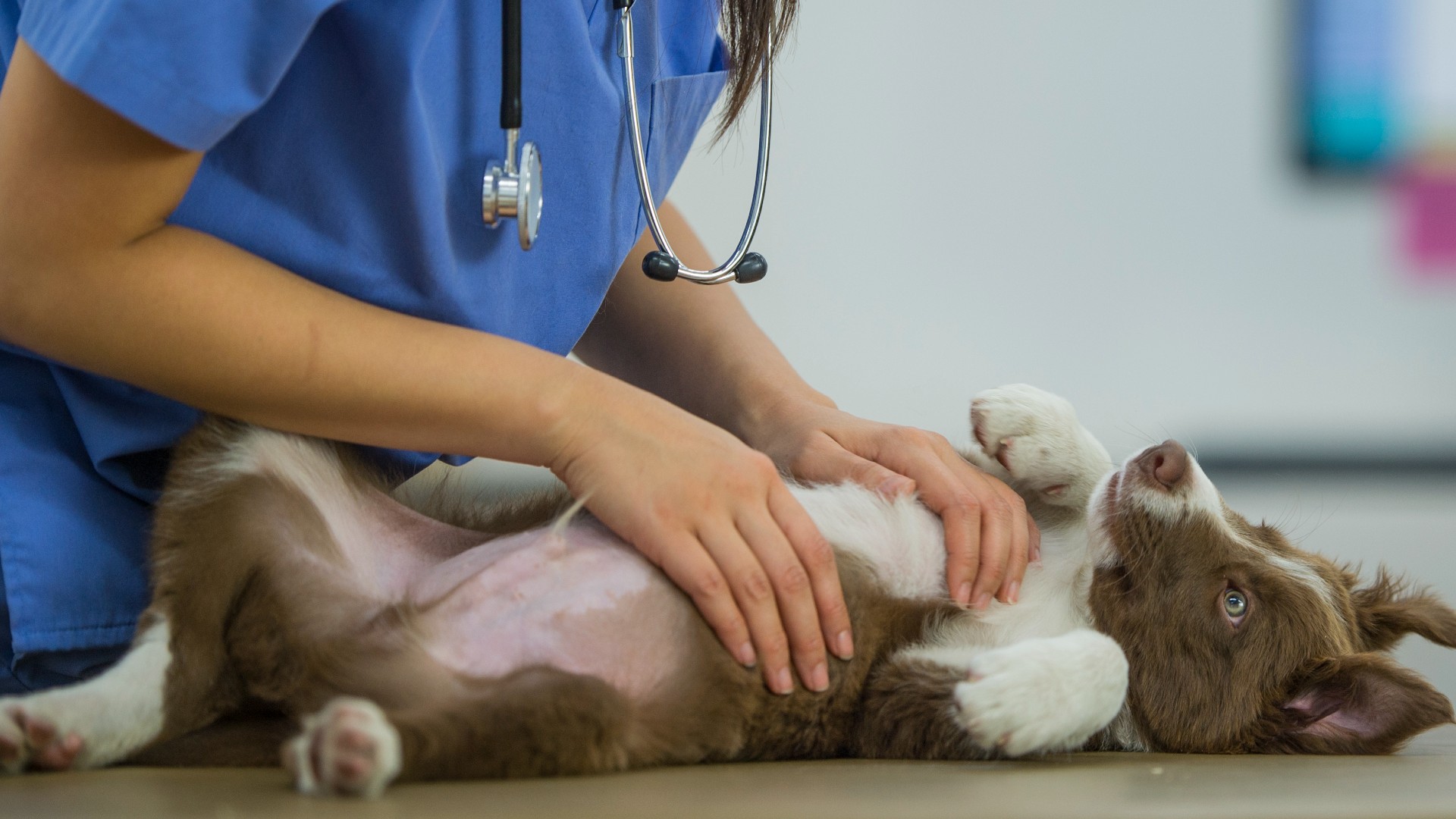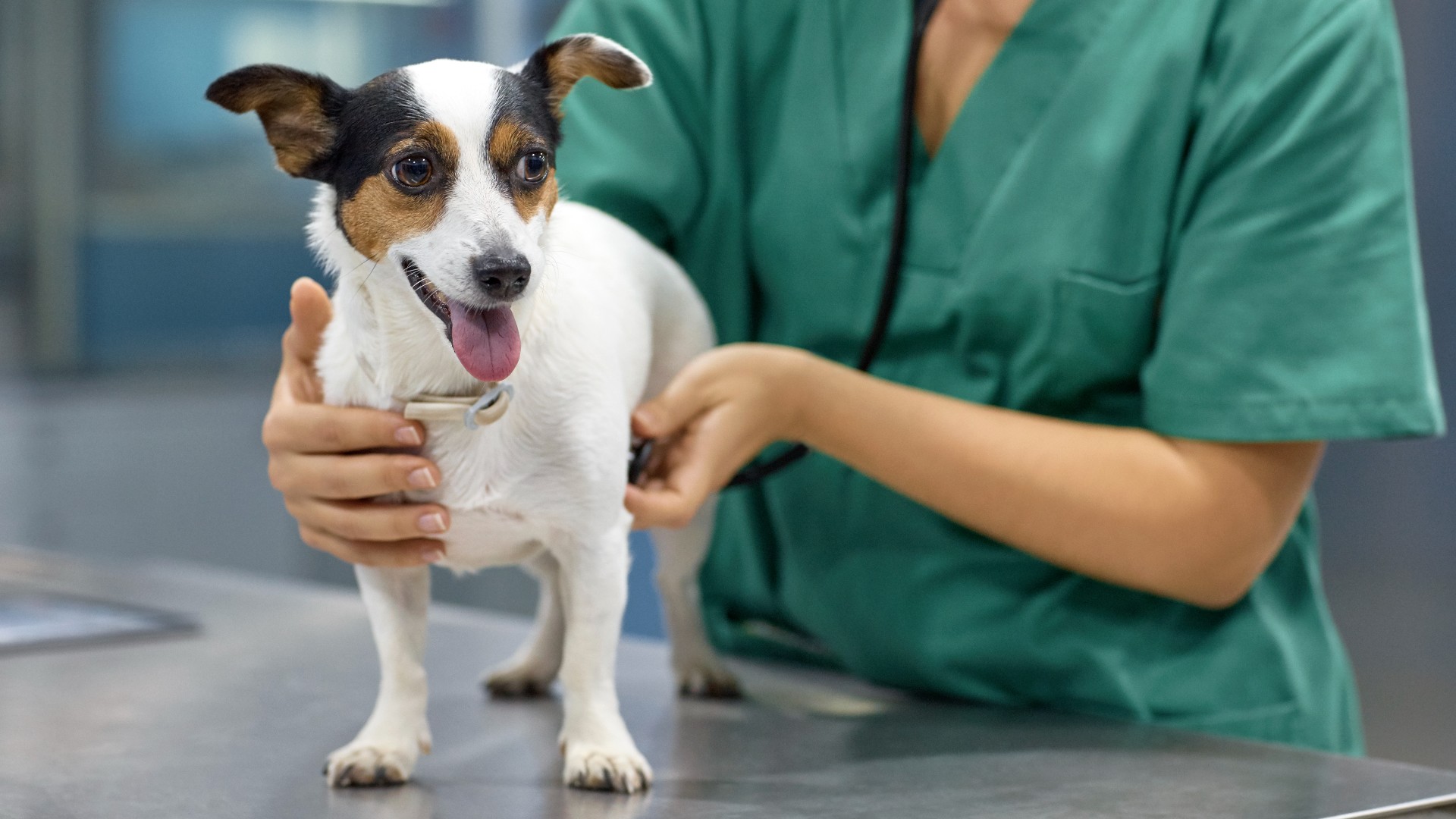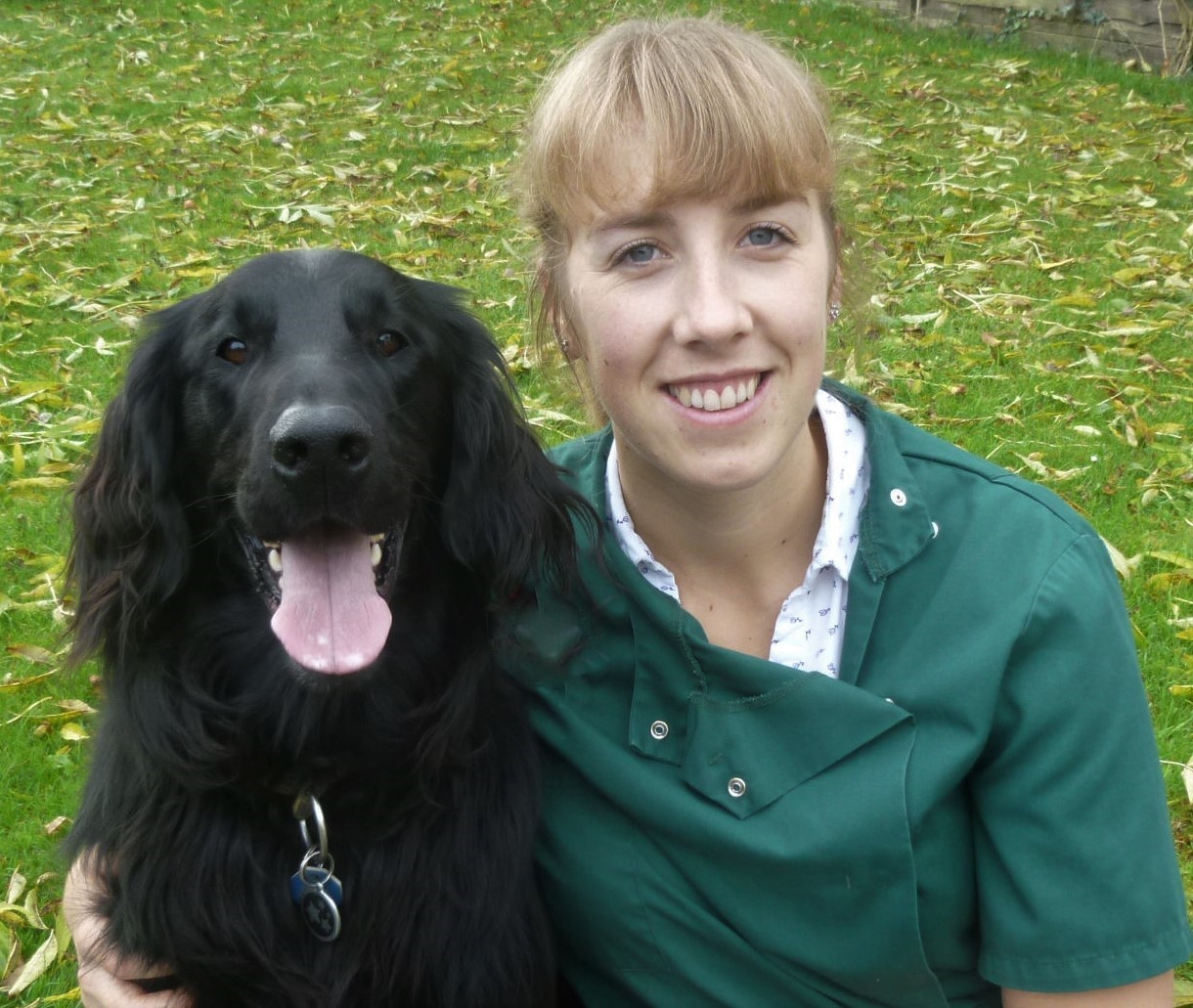Sensitive stomach in dogs: Vet's guide to causes and treatment
Our vet looks at the reasons behind a sensitive stomach in dogs and how you can help them

Get the best advice, tips and top tech for your beloved Pets
You are now subscribed
Your newsletter sign-up was successful
The term sensitive stomach in dogs is heard quite a lot, particularly when describing those animals that have repeat episodes of diarrhea. These dogs are usually otherwise well in themselves but seem to be prone to tummy troubles.
Some owners know to steer clear of certain foods for their pet as it can cause issues, turning to specially devised food or specific dog treats for sensitive stomachs instead, whereas the cause is less clear in other dogs.
In this article, we will explore sensitive stomachs in more detail as well as how to help your pet.
- Best dog food: Nutritious meals to help your pup thrive
- Homemade dog food for sensitive stomachs: 6 mouth-watering meals
What is a sensitive stomach in dogs?
Dogs are known for being quite hardy and will have a go at gobbling most things! But some dogs can’t seem to handle sudden changes in diet, rich foods or too many treats. These dogs are usually classed as having a ‘sensitive stomach’. This is a very broad and non-scientific term, but one that both vets and owners use regularly.
It is important, however, to rule out that there is no underlying cause for your pets’ digestive problems first, particularly if they suffer from symptoms regularly. There are many causes of an upset stomach in dogs so get your pet checked over by a vet before assuming he just has a sensitive stomach. Animals with parasite infections or pancreas issues can all present in a very similar way.
Symptoms of a sensitive stomach in dogs
The symptoms of a sensitive stomach could include:
- Repeat episodes of loose stools (from soft, hard to pick up faeces through to liquid diarrhea)
- Excessive mucus in the stools
- Blood in the stools
- Vomiting
- Abdominal discomfort
- Increased flatulence
- Increased burping
- Changes in appetite
These symptoms may occur due to a specific trigger, such as a sudden change to a new brand of dog food, or they may seemingly occur at random.
Get the best advice, tips and top tech for your beloved Pets

What causes a dog to have a sensitive stomach?
The most common cause of a sensitive stomach in dogs is their diet. Some dogs can’t handle a sudden change in diet, so swapping food brands or flavours, feeding table scraps or giving too many treats can cause problems.
Some animals may have developed a food sensitivity meaning they are intolerant, or even allergic, to certain ingredients. Beef, milk and chicken are the three common food allergies in pets, but your dog may be sensitive to others.
Unresolved parasite or bacterial infections can make your dog’s stomach more sensitive, meaning he may be fine on bland food but flares up again when he’s given something a little harder to digest.
What dog breeds are prone to sensitive stomachs?
Any type of dog can have a sensitive stomach, but some breeds seem more prone than others. The following breeds are seen regularly in veterinary practice with digestive complaints:
- German Shepherd Dogs
- Labrador Retrievers
- Miniature Schnauzers
- Irish Setters
- Poodles
- Cocker Spaniels
- Shar Peis
How to help my dog's sensitive stomach?
If your dog is having repeated bouts of stomach upset, or has ongoing loose stools that never seem to resolve, then the next step is to see your vet.
Your vet will start by examining your dog, checking for issues like weight changes, abdominal pain or a raised body temperature. Depending on their findings they may suggest some further tests.
Faecal samples can be useful to look for infectious causes of loose stools like parasites and bacteria. Blood samples may be recommended to look at your pet’s overall health status, as well as any organ malfunctions that could be causing issues (such as liver disease, or exocrine pancreatic insufficiency).
Sometimes diagnostic imaging is required such as X-rays or ultrasound scans, to look for any signs of tumours (particularly in older animals), foreign bodies or markers of inflammatory bowel disease. A biopsy of your dog’s digestive tract may be advised too.
Your vet may decide that a dietary trial is a good idea, trying your pet on a control diet for a period of time to see if his symptoms resolve.

What food can I give my dog for a sensitive stomach?
Even if your dog is already on the best dog food, you may need to consider feeding something else, particularly whilst his tummy is upset.
Bland, easy to digest food is usually advised such as wet or dry food specifically designed for dogs with upset stomachs. These ‘prescription’ sensitivity diets can generally be purchased from your vet, but also from pet shops and online.
If you are looking for homemade dog food ideas for sensitive stomachs then you could try feeding cooked chicken, cooked white fish or boiled rice for a couple of days which is easy to digest. It’s important to recognise that this is not a long-term solution, however, as it will lead to nutrient deficiencies.
Is dry food or wet food better for dogs with sensitive stomachs?
It is not usually whether the food is dry or whether it is wet that causes the problem, but rather the ingredients that each contains. If you are feeding a prescription sensitive stomach food then either the wet or the dry version of that diet should be fine to give your pet, depending on their preference.
Do puppies grow out of sensitive stomachs?
Some puppies can appear to have sensitive stomachs before their digestive tract matures. Symptoms can be caused by sudden changes in diet (a common mistake), the stress of moving to a new home and too many treats. It’s important to make sure that your puppy has no underlying causes of disease though, so get him checked out if his symptoms persist or if he appears unwell.
Summary
It’s important to make sure there are no underlying causes for your dog’s tummy troubles, so get him checked out by a vet. Sensitive stomachs do occur in dogs, and many can be managed through diet, but be certain you have ruled out things like parasites, bacterial infections and organ malfunctions first!
Rebecca is a veterinary surgeon who graduated from the Royal Veterinary College in London in 2009. She enjoys medicine in particular and she is proud to have achieved a BSAVA postgraduate certificate in small animal medicine (with commendation) from Nottingham Trent University in 2021.
She has a wealth of experience in first opinion small animal practice, having done a mixture of day-to-day routine work, on-call emergency duties and managerial roles since 2009.
She writes on various feline and canine topics for the Veterinary Content Company and a freelance basis, including behavior, nutrition, and health. Outside of work and writing she enjoys walking her own dog, spending time with her young family and baking!

